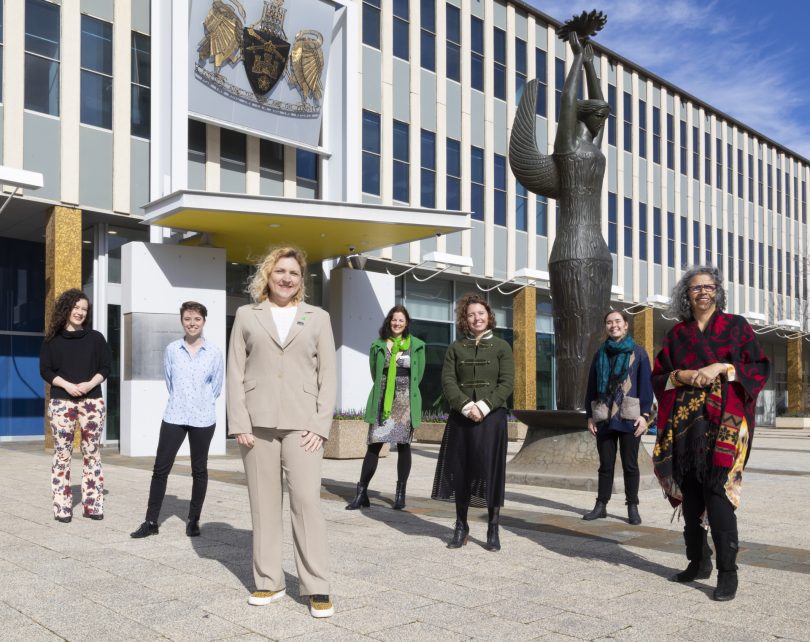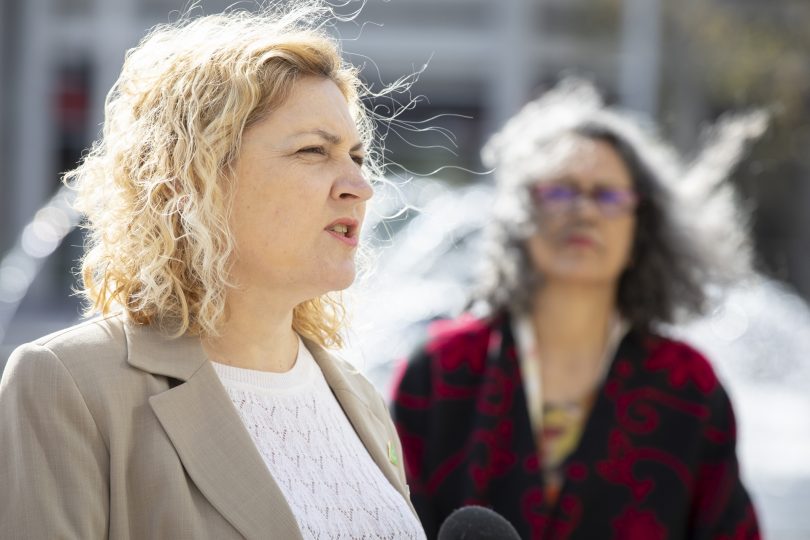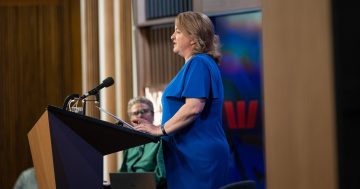
The ACT Greens’ female candidates for the 2020 election have announced a new COVID-19 recovery plan that focuses on gender equality in the Territory. Photos: Michelle Kroll.
The ACT Greens will provide the option for people to take on a four-day work week and more work-from-home opportunities in the ACT Public Service (ACTPS) as a part of a new gender-led recovery package that aims to increase access to jobs and opportunities for women in the ACT.
The new policy platform, released three months ahead of this year’s ACT election, will look to balance the scales for women who have been disproportionately affected by the COVID-19 pandemic, the Greens say.
“There are opportunities for us to do a lot more for people who are having a hard time at the moment,” the Greens’ campaign spokesperson for women, Emma Davidson, said.
“Gender equality and women’s rights are essential to getting through this pandemic together.
“The ACT Public Service leads by example in things like working conditions and pay levels so it would be great to see more opportunities to have a four-day working week, the flexibility to work from home regularly and to look at how [people can] get the balance right for themselves.”
The ACT Government’s 15-hour-a-week free childcare policy for three-year-olds would also be expedited under the package.
SEE ALSO: Uncertainty increases as free childcare ends.
Childcare for four-year-olds in the Territory is currently free for up to 600 hours per year at a cost of about $35.6 million a year, shared between the ACT and Federal Governments.
The ACT Government announced that the scheme would be extended to three-year-olds in 2018. However, in 2020 only the first phase has been implemented which offers 300 places for priority children and an additional 100 places for Aboriginal and Torres Strait Islander children.

ACT Greens’ candidate Emma Davidson says the new plan will give more opportunities to women in the ACT.
With more flexibility around working conditions and easier access to childcare, more support would be given to both men and women who have been impacted by COVID-19, Ms Davidson said.
“It is important that we look at the four-day working week and see how that supports men as well. There are a lot of people during the disruption who have had a rethink about how they want to get balance in their life,” she said.
“How you pay the bills is not defined by your gender so in our workplaces we should be more flexible and have those conversations between employers and staff about how we get it right.”
However, the Greens’ policy is unclear about the specifics of the four-day working week and working from home, including whether the option would be mandatory or the prorating of pay scales.
“For a lot of people, that is a decision that they need to make as individuals. What we want is to open up the options and open up the flexibility,” Ms Davidson said.
Gender weighting in criteria for funding or contracts, scholarships for women in year 9 and 10 in trades and the renewable energy sector, and more jobs in women-dominated industries will also be utilised to ensure women get more opportunities in a post-COVID-19 society.
More street lights, and on-demand and flexibus services to make it safer for women returning home at night, dedicated swimming pool times for Muslim women and more access to sexual and reproductive health services round off the new proposal.
The cost of the new policies remains unknown, although the Greens’ said costings had been done and would be made available soon.





















